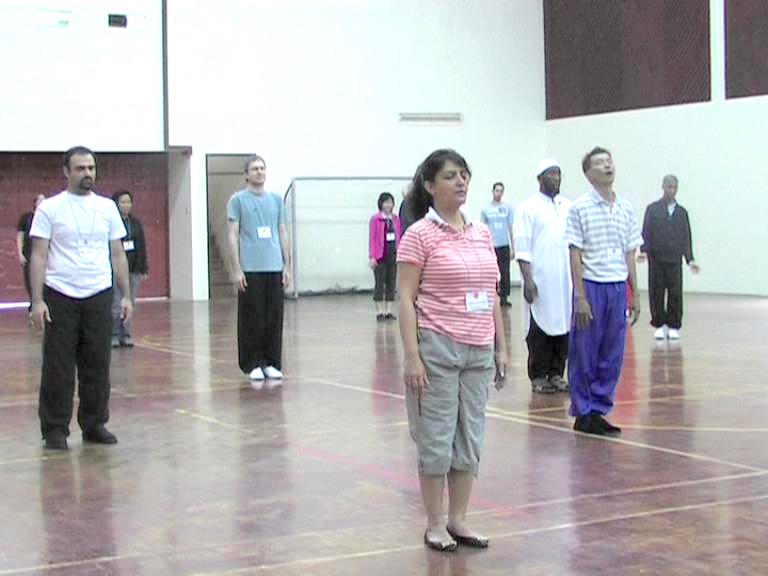HOW TO GET OVER FEELINGS OF ANGER AND DESPAIR

An Intensive Chi Kung Course in Sabah
Question
But could I ask Sifu how to go about it when people are angry and start shouting at us? Is there any way that we can calm them down quickly? How can I get over my feelings of sadness and despair quickly as well.
— Dr Nurlia, Malaysia
Answer
A simple, effective way to calm an angry person down is to tell him (or her) that you are sorry about the situation, irrespective of who is right. “I am sorry” are three magic words that often prevent right at the start a small disagreement that may eventually explode into a big conflict.
Many people find it hard to say these three magic words because they mistakenly think doing so would belittle them, or it implies they are wrong. Actually it requires greatness and confidence to say sorry. Saying sorry does not indicate that the speaker is wrong. It indicates that he is sad that the incident, which should not happen, has happened. Who is wrong is another matter.
If someone starts shouting at you for no apparent reasons, and you say “I am sorry”, you are actually saying I wish you could be calm and happy but I am sad that you are not.
The Malays go one step further. They do not merely say sorry, they “minta maaf”, or ask for forgiveness. To me this is one of the most beautiful aspects of Malay culture, which speaks a lot about the grace and gentleness of the Malay people. During festival days when other people would say “Merry Christmas” or “Happy New Year”, Malay children would grasp and kiss the hands of their elders and say “minta maaf”, asking for forgiveness for whatever wrongs they may have wittingly or unwittingly done.
In fact, I just had an experience of this “minta maaf” situation. A Malay youth on a motor-cycle smashed onto the side of a newly bought brand new car of my youngest daughter. When I arrived at the scene, the youth, still bleeding from his elbows and knees, told me, “Uncle, minta maaf.”
Actually thanks to my chi kung training, even without his “minta maaf” I was very calm and not angry at all. I sincerely replied that it was not important who was right or wrong, what was important was that he was not seriously hurt. Although he or his insurance company should pay for the damage of my daughter's car, I paid him handsomely to seek medical aid and to repair his motor-cycle. My wife, a firm believer that if someone has said sorry, you should not be angry any more, said that I should have paid him more money to compensate for his injuries.
Besides saying sorry calmly and confidently, another good way to calm down an angry person is to let your good chi spread out and soothe him. This can be readily accomplished by someone who practices high-level chi kung (like ours). It is simple, but impossible for the untrained. All you need to do is to gently focus on your dan tian, then gently think of your good chi spreading to him and smoothing him. You should do this just two or three times. Doing more may drain yourself.
If you have been practicing our chi kung consistently, getting over sadness, despair and other negative emotions is automatic. You don't have to do anything special; your normal vigorous chi flow will flush out the negative emotions.
Yet, if you wish to enhance the normal process, there are special methods. One effective way is to perform a self-manifested chi movement. Another effective way is to perform “Lifting the Sky” or “Carrying the Moon”, gently visualizing that the flow of golden cosmic energy from heaven through your body cleanse out the negative emotions.
But when you are at the spot of the situation where you may not have the time or occasion to perform these special techniques, an effective way is to breathe out deeply but gently. As you breathe out, gently think of your negative emotions being flushed out. You need not worry about breathing in. This does not mean you do not breathe in; it means you do not purposely breathe in but if you spontaneously breathe in, that is fine.
The above is taken from Question 3 of October 2004 Part 1 of the Selection of Questions and Answers.
LINKS
Courses and Classes
